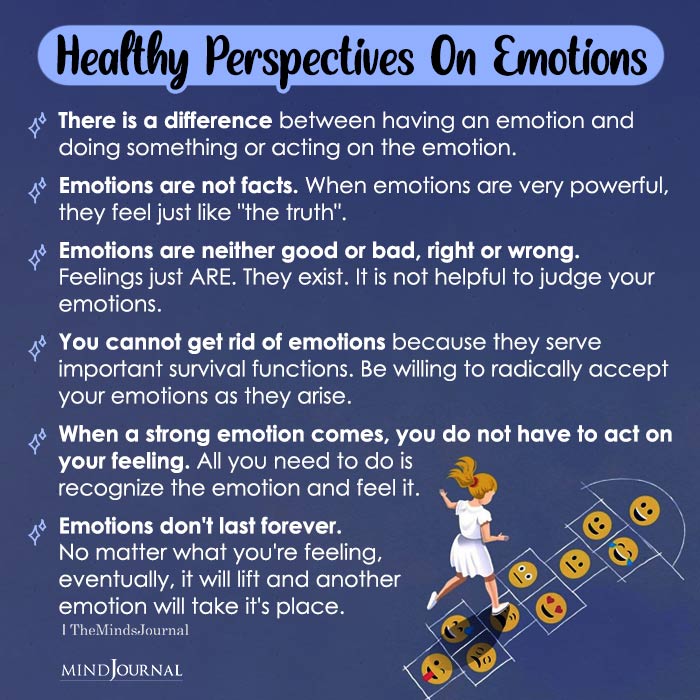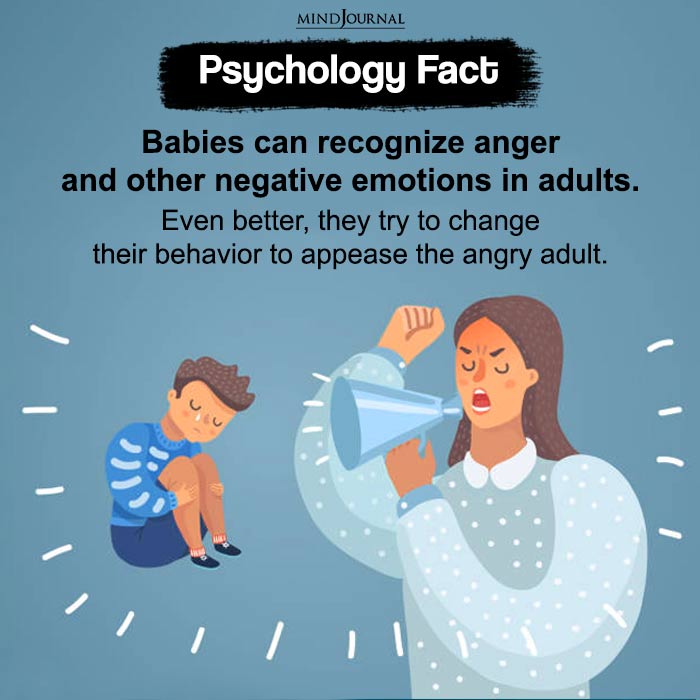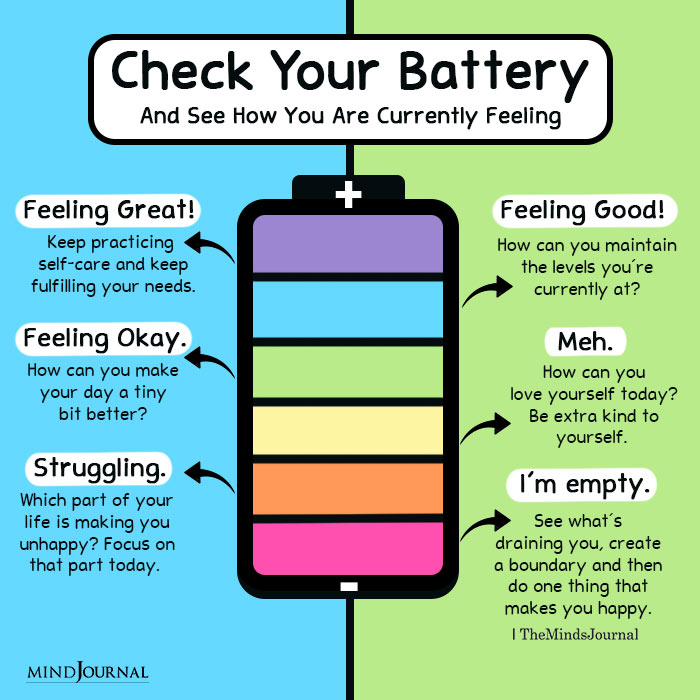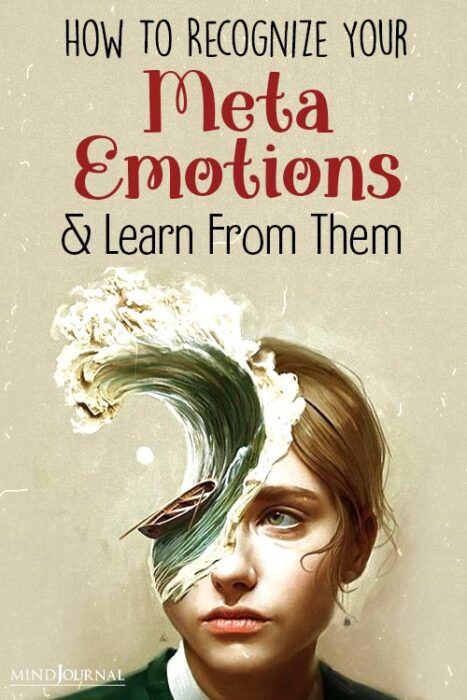Did you ever have feelings about feelings? Are you aware of your emotions and feel a certain way about different emotions? How you feel about feelings is known as meta emotions and understanding it is crucial for our mental health and interpersonal relationships.
The relationship we have with our own emotions can influence our mindset, personality and mental and emotional well-being to a great extent. How we accept our feelings and let go of negative emotions has a strong impact on our ability to form positive social bonds.
But what exactly do we mean by meta emotions and can they improve our lives? Read along to find out.
What are meta emotions?
Meta emotions refer to how we feel about feelings. These can often be overwhelming as having emotions about emotions can often feel exhausting. Each and everyone of us experience different feelings about different emotions. While some of us are more open to acknowledging emotions, others may reject them. Our meta emotions are a reflection of our emotional experiences in life. While we may consciously experience a meta emotion, it can also arise subconsciously or unconsciously.
Related: Meta-Emotion: How You Feel About Feelings

While all of us have meta-emotional experiences, most of us are unaware of the concept which makes it harder for us to manage our emotions. According to a 2019 study, “Meta-emotions are emotions that occur in response to other emotions (e.g., guilt about anger).” The researchers found that these emotional experiences can be categorized as –
- Positive-positive (PP)
- Positive-negative (PN)
- Negative-positive (NP)
- Negative-negative (NN)
These are secondary or second-order emotions that arise from a core emotion which is already being experienced. Hence, a meta emotion can often result in an internal emotional conflict making us feel overwhelmed. However, this set of structured cognitions and emotions can be experienced for your own emotions and for the emotions of others.
Meta-emotions in daily life
The concept of meta emotions shows that whenever we experience a core emotion, it is followed by subsequent emotions based on the experience of the primary emotion. These experiences can be long-term as well as short-term and can be felt in the course of our daily lives.
For instance, when watching a movie with your friends, you may feel sad about a particular character and may subconsciously start crying as you empathize with them. However, once the movie is over, you may feel uncomfortable and ashamed for crying while watching the film. This is what meta emotions look like in our normal daily life.
Related: Ekman’s 6 Basic Emotions and How They Affect Our Behavior
Another common example of meta-emotional experiences is losing your temper, having an argument with someone and then feeling seriously guilty for the way you reacted and behaved with the other person. Here, you are aware of your anger, which is the primary emotion, and feel guilty for not being able to control it, which is the secondary emotion experienced after the primary emotion has already been felt.

This reflective analysis of emotions is known as meta emotions – having feelings about feelings. “Meta-emotions – defined as emotions about one’s own emotions – contribute to the complexity of people’s psychic life by modifying the intensity and quality of their first-order emotions, and influencing their decisions and behavior,” explain researchers.
Meta emotions in human psychology
The concept of meta emotion was originally introduced by John Gottman et al. (1996) while researching family therapy. It was observed that parents tend to be aware of their own emotions and the emotions of the children. According to American psychologist John M. Gottman, “We use the term meta-emotion broadly to encompass both feelings and thoughts about emotion, rather than in the more narrow sense of one’s feelings about feelings (e.g., feeling guilty about being angry).”
Termed as “meta emotional philosophy”, it was found that parents have different thoughts and emotions regarding how they feel & about their children’s emotions. This strongly influences their emotions and behaviors in daily life. The concept has been explored and adopted further by experts in psychology and philosophy and has been applied widely in various subdisciplines, such as –
- Personality psychology
- Media psychology
- Decision making
- Clinical psychology
Related: What Is The Wheel of Emotions And Why You Should Use It
Meta emotion philosophy
The initial research by Gottman et al. (1996) was primarily focused on parental awareness of their children’s emotional states and how they attempted to build emotional connections with their children. The research asserted parents’ philosophies about the concept of meta emotions can be evaluated by understanding –
- Awareness of parents about their children’s and their own emotions
- Parents’ views and perspectives on whether negative emotions experienced by children can create an opportunity for teaching and emotional connection
- Parents’ tendency to validate & label the emotions of their children
- Parents’ tendency to help their children to solve problems in scenarios that cause negative emotions

“In general, parents seem to hold either an emotion coaching or emotion dismissing philosophy,” explain researchers. Parents with the meta emotion philosophy of emotion coaching see the negative emotions of their children as opportunities for building intimacy teaching/learning. They are highly aware of their and their children’s feelings, label & validate their emotions and help their children to deal with “emotionally arousing situations.”
Related: 7 Tips To Help Kids Learn to Control Their Emotions
However, parents with the meta emotion philosophy of emotion dismissing consider negative emotions in their children as damaging and detrimental. So they prefer to ignore and dismiss such negative emotions or at least change any difficult emotions that may be experienced by the children.
When researching meta emotions, Gottman and his associates found that “parents’ meta-emotion philosophies influence the way in which children are socialized to experience and express emotions.” In comparison to children of parents with an emotion dismissing philosophy, children of parents with an emotion coaching philosophy tend to have –
- Healthy psychosocial adjustment and peer relations
- Better physiological and emotion regulation abilities
- Fewer externalizing and internalizing symptoms
- Higher self-esteem
- Less physiological stress
- Higher levels of academic achievement
- Higher social competence and social skills
- Engage in greater positive peer play
Related: How To Encourage Kids To Talk About Emotions: Building Emotional Competence in Children
How to identify meta emotions
The best way to recognize your meta-emotions is to be honest with yourself and ask yourself targeted questions about the emotions you are experiencing at the moment. You ask yourself questions like –
- What is the main reason I am feeling like this?
- What event, experience or memory triggered this emotion?
- What do I actually feel about this emotion?
When you ask such questions to yourself, you will be able to gain more awareness and understanding about your feelings and will be able to identify if an emotion is a primary emotion or a secondary one.

4 Types of meta-emotions
According to a 2017 study, meta emotion philosophy involves 4 distinct types of philosophies:
1. Emotion coaching
Parents with emotion coaching philosophy are attentive to the feelings of their children. They openly communicate to their children about what they are feeling, why such emotions have been elicited and how to cope with them.
2. Laissez-faire
Parents with this philosophy of meta emotions are aware of their children’s feelings and accept them as they are. However, they provide little support or guidance to the children who have to cope with the emotions mostly by themselves.
3. Emotion dismissing
Parents with a dismissing philosophy believe that negative or difficult emotions are harmful and hence, the emotions of children must be minimized.
Related: Why Your Emotions Are Not “Things” In Your Brain
4. Emotion disapproving
Parents with a disapproving meta emotions philosophy tend to actively disapprove, discourage and penalize their children for exhibiting emotions openly.
The researchers claim that “these philosophies can be treated categorically” but “using them as continuous was more precise.”
Meta emotions in relationships
Along with attachment styles, meta emotions in parents and how they respond to their children’s emotions play an important role in the development of children and their adult relationships. Meta-emotional experiences of our parents and our own have a close impact on our mindset, personality, behavior, actions and our relationships. It determines how we interact, communicate and connect with our parents, siblings, relatives, coworkers, friends and romantic partners.
Emotions can make relationships complicated as different people can experience different emotions simultaneously. In a romantic relationship, while one partner may feel independent and satisfied, the other partner may feel neglected and anxious. This difference in meta-emotional experiences is known as meta-emotion mismatch.
This mismatch can cause conflict, misunderstanding and clashes in relationships, especially between romantic partners. If your meta emotions are based on emotion coaching while your partner’s meta emotions have an emotion dismissing background, then your relationship is likely to be unhealthy, messy and chaotic.

A person with an emotion coaching philosophy will be comfortable with different emotions and will likely be supportive of their partner, validating the emotions. They may also openly express their happiness, anxiety, disappointment, sadness and fear.
Related: How Negative Emotions Are Opportunities for Connection in Relationships
On the contrary, a person with an emotion dismissing philosophy may have difficulty controlling their emotions and may suppress or hide from their emotions. Hence, they may be more reserved and withdrawn when it comes to expressing themselves.
How to deal with meta emotions
Can you feel your feelings? Are you wondering how to manage your meta emotions? If you are wondering how to deal with meta emotions and balance any “meta emotion mismatch” that may exist in your relationships, then here are few helpful ways to get started –
1. Be reflective
Always make sure to be mindful of your emotions and acknowledge what you are feeling instead of avoiding them. The simplest way to do this is to pause and reflect. Simply calm your mind and reflect on any recent emotional experience and observe how it has affected your thoughts, mood and behavior.
Whatever emotion you may be feeling, especially if it is a negative emotion, be aware of it and pay your undivided attention to that feeling. Focus on your self-talk, accept your emotions honestly without trying to justify it and let it go when you are ready. You can also practice positive self-talk to be more kind, compassionate and gentle with yourself when experiencing negative emotions.
2. Practice journaling

Maintaining a journal to keep a track of your emotions and moods can help you to better understand your emotions and meta emotions. Write down your thoughts and feelings in your mood journal on a daily basis and be as detailed as you want to be. Mood tracking journals can help you figure out what emotions you feel most and why you feel certain emotions more than others.
Related: 12 Signs You’re Uncomfortable With Emotions And How To Accept Them
It will also empower you to acknowledge your meta emotions while maintaining a record of your daily thoughts, feelings and mood. This can help you gain better insight and emotional control in future.
3. Recognize meta emotion mismatch
Identify any differences you may have with your partner when it comes to exhibiting or dealing with emotions. Be specific and aware, but make sure to be non-judgmental and accepting of whatever the reality may be.
4. Embrace each other’s emotions
Put in the effort to acknowledge, embrace and honor one another’s emotions with a strong focus on building emotional connection and intimacy. Regardless of your particular meta emotion philosophy, both partners need to be willing, interested and curious to understand the emotional state of each other.
Understand your feelings about feelings

It is important that we understand our meta emotions as it will allow us to navigate through our career, relationships and life more smoothly and effectively. It is also an essential part of our self-awareness and personal growth process. It can help us to better control our emotions & reactions and lead to self-love & self-compassion when we accept our emotions.
Meta emotions can be very powerful and being aware of them, whether in yourself or others, can help you learn, transform and prosper in the long run.
Related: 8 Steps To Regulate Your Emotions When They Drive You Crazy










Leave a Reply
You must be logged in to post a comment.